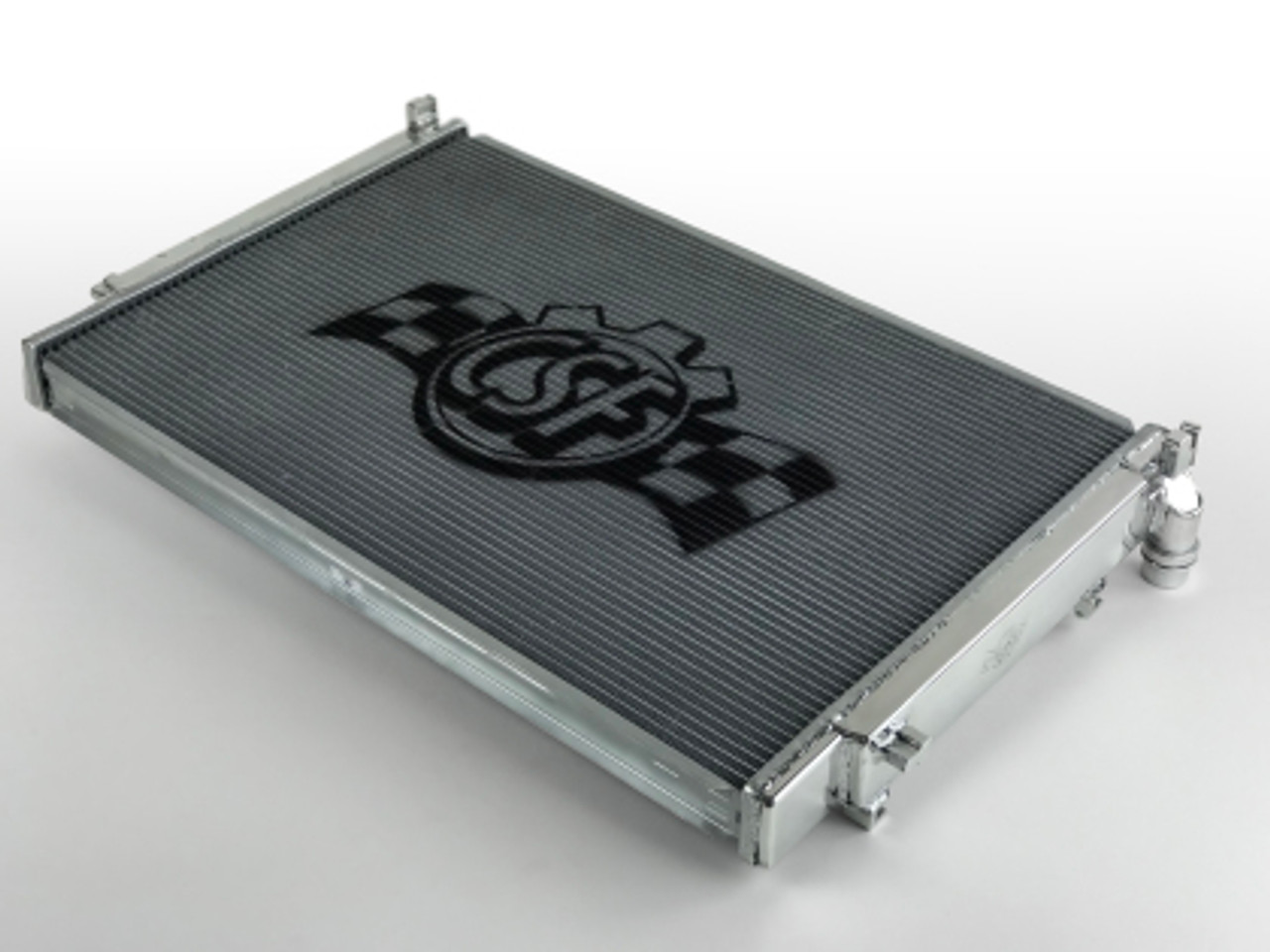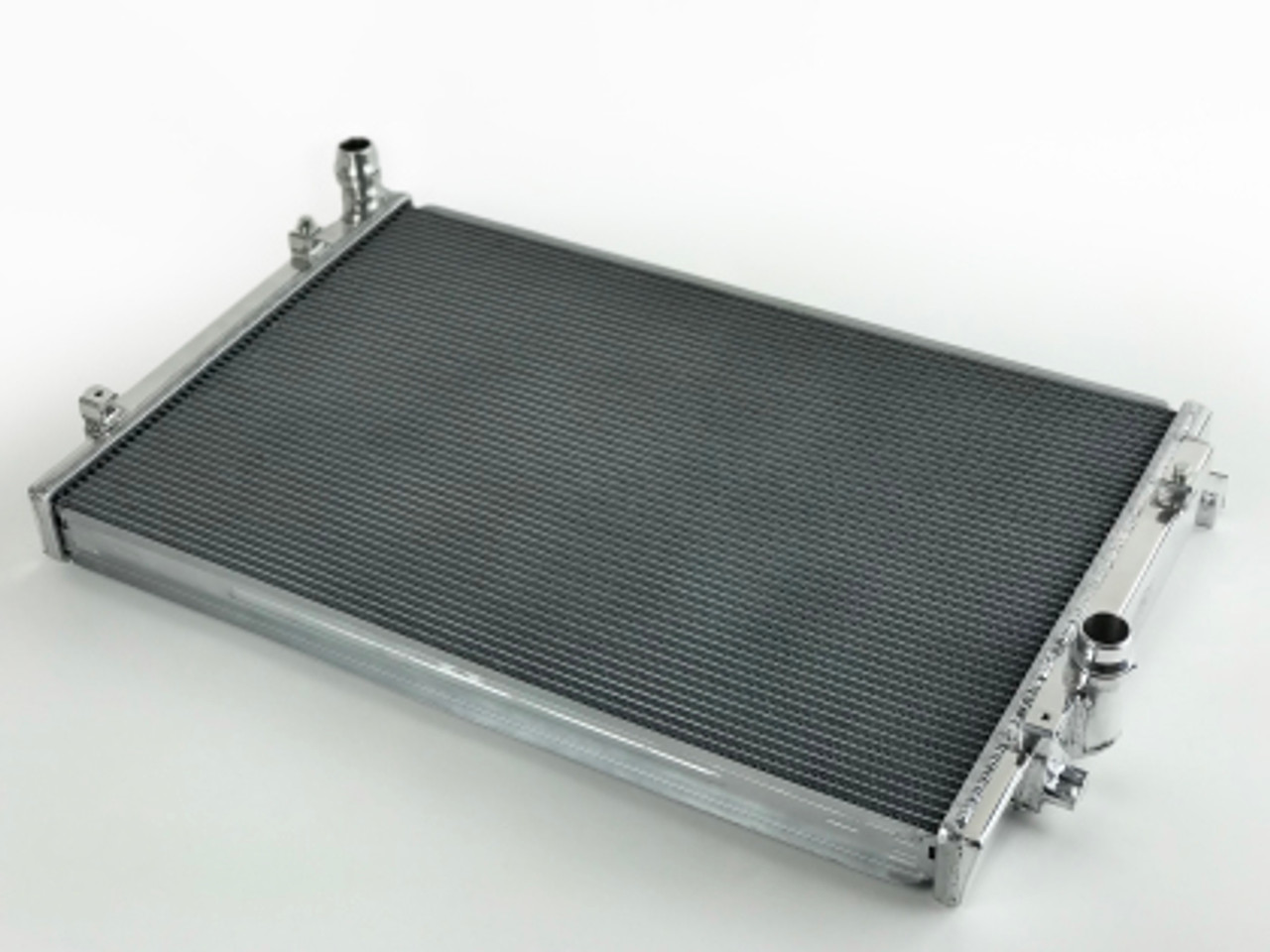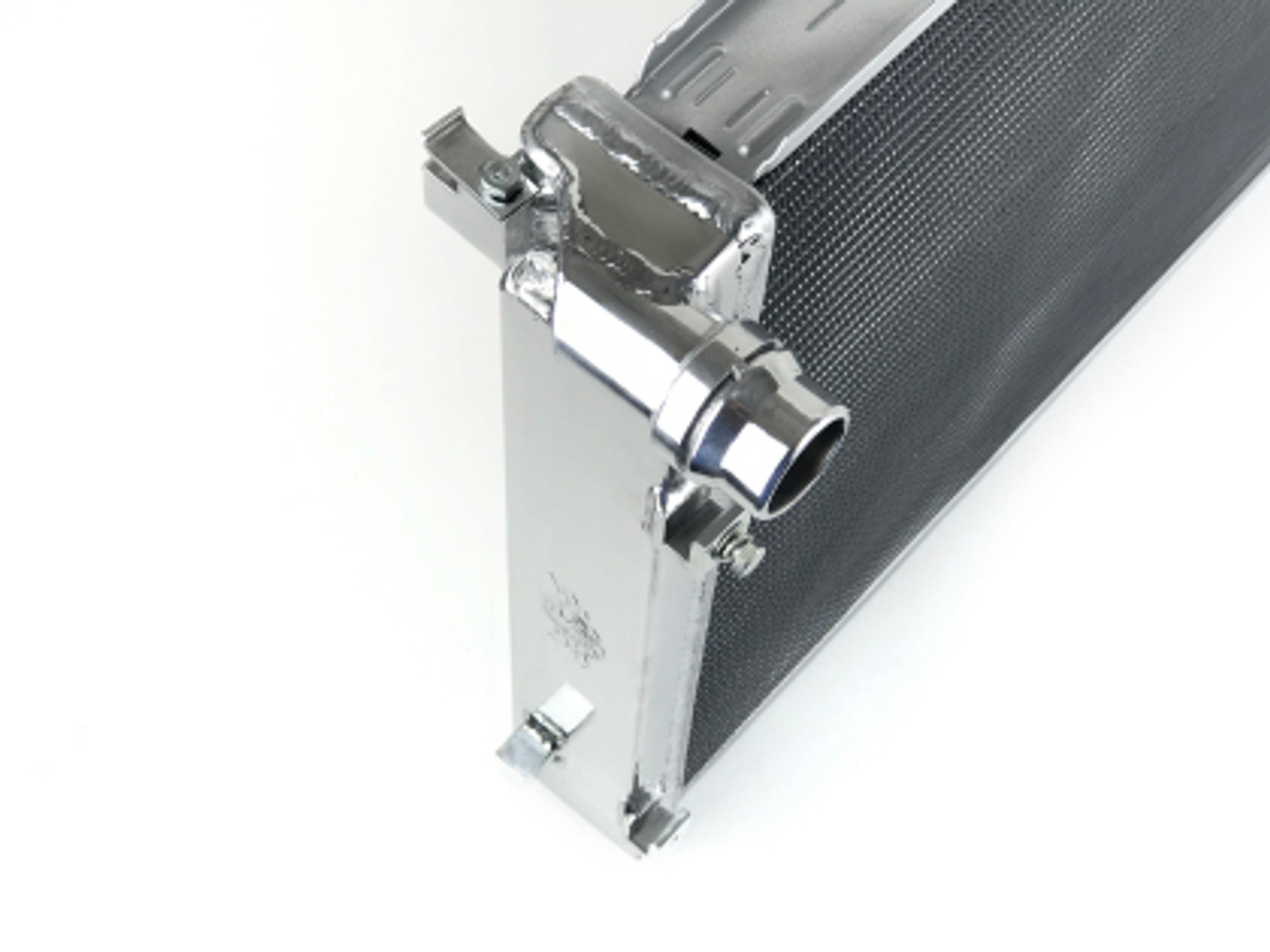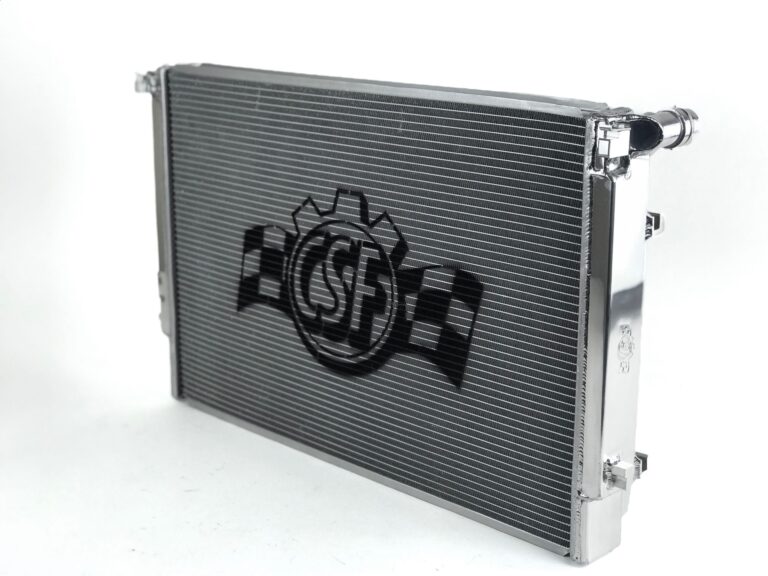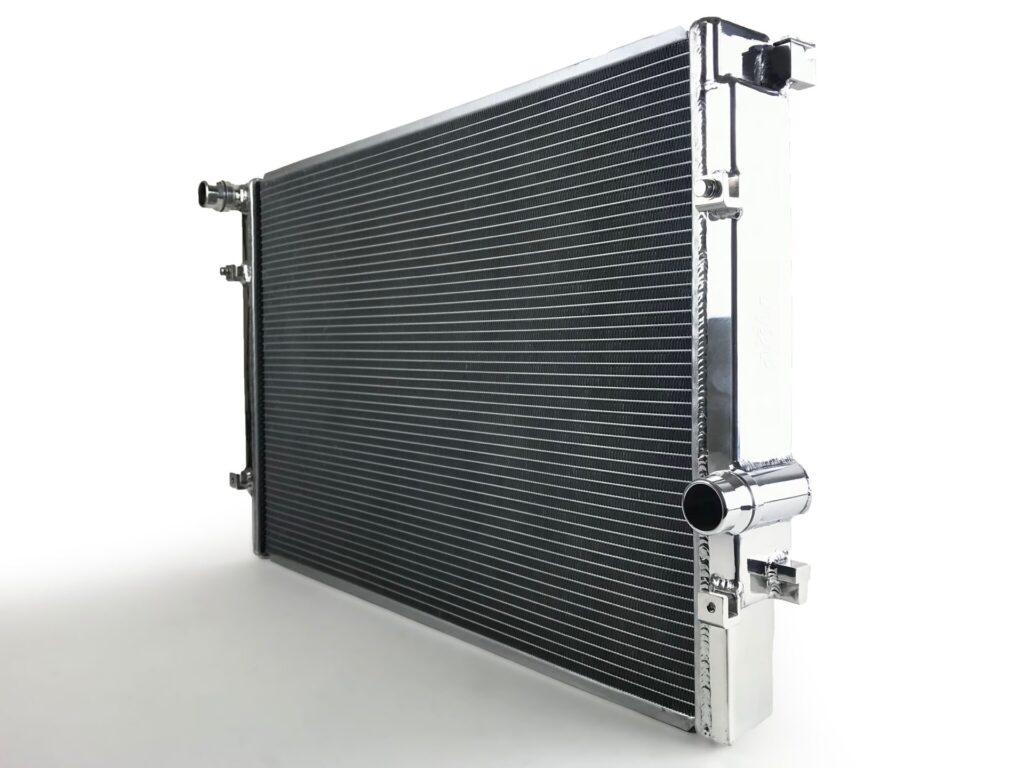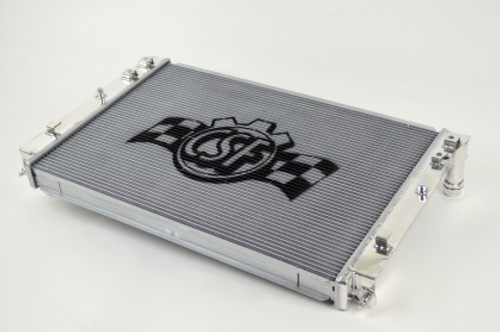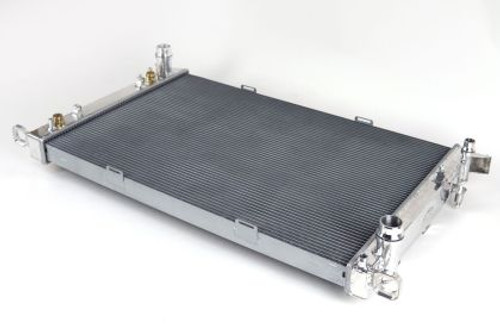Product Description
CSF is proud to announce the release of its highly anticipated MQB cooling components. Finally, an aftermarket high-performance cooling solution now available to tackle the many overheating issues that have plagued this otherwise great track-worthy platform. The Ultimate MQB cooling system, exclusively by CSF, is designed to keep engine water, as well as both transmission and engine oil temperatures in check and at optimal levels, even under the most demanding race conditions. By utilizing CSF’s new suite of coolers in either a 1, 2 or 3 piece configuration, it allows drivers the ability to unleash their car’s full potential for extended periods during racing conditions.
The MQB cooling package consists of the following “drop-in fit” all-aluminum components by CSF. Both utilizing CSF’s B-tube technology.
Radiator
A high performance / race-grade, all-aluminum, triple-pass engine water radiator (CSF #7084)
Fitment
Audi 8V A3 1.8TSi, Audi 8V S3, Audi 8S TT (2.0TSi), Volkswagen MK7 Golf GTi, Volkswagen MK7 Golf R, Seat 5F Leon Cupra, Skoda 5E Octavia vRS
DSG/Heat Exchanger
A high performance / race-grade, all-aluminum, quadruple-pass DSG transmission water-to-oil heat exchanger. This new component is multi-fit that can also be installed (with no modifications) as an upgraded auxiliary radiator for maximum cooling performance. (CSF #8132)
Fitment
Audi 8X S1, Audi 8V S3, Audi 8S TT (2.0TSi), Volkswagen MK7 Golf R, 5F Leon Cupra.
CSF’s MQB cooling package
High-performance all-aluminum, triple-pass engine water radiator (CSF #7084)
High-performance all-aluminum, quadruple-pass DSG transmission water-to-oil heat exchanger (CSF #8132)
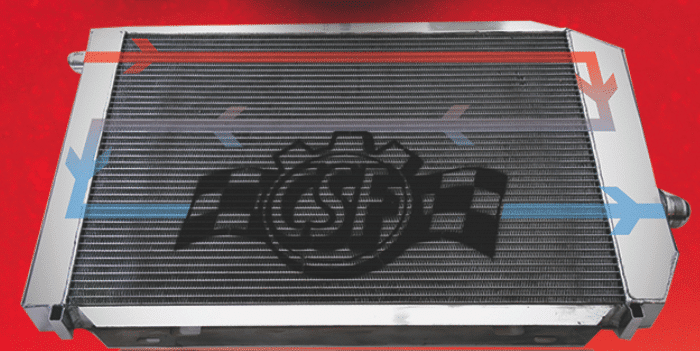
The VW Mk7 Golf R and GTI are two of the most widely praised and popular hot hatches globally and for good reason. Not only are they applauded for their factory performance, but respond extremely well to modifications. For instance, power can be increased by ~30% with simple bolt on upgrades such as an intake, exhaust, upgraded intercooler and off-the-shelf ECU software tuning. With the ability to increase the vehicle’s performance, it is often easy to overlook the consequence of increasing power, which equates to more heat being generated by the system. Combined with possible on-track / harsh driving conditions during race use, addressing the factory cooling system with CSF’s new line of MQB cooling products becomes increasingly necessary for optimal performance.
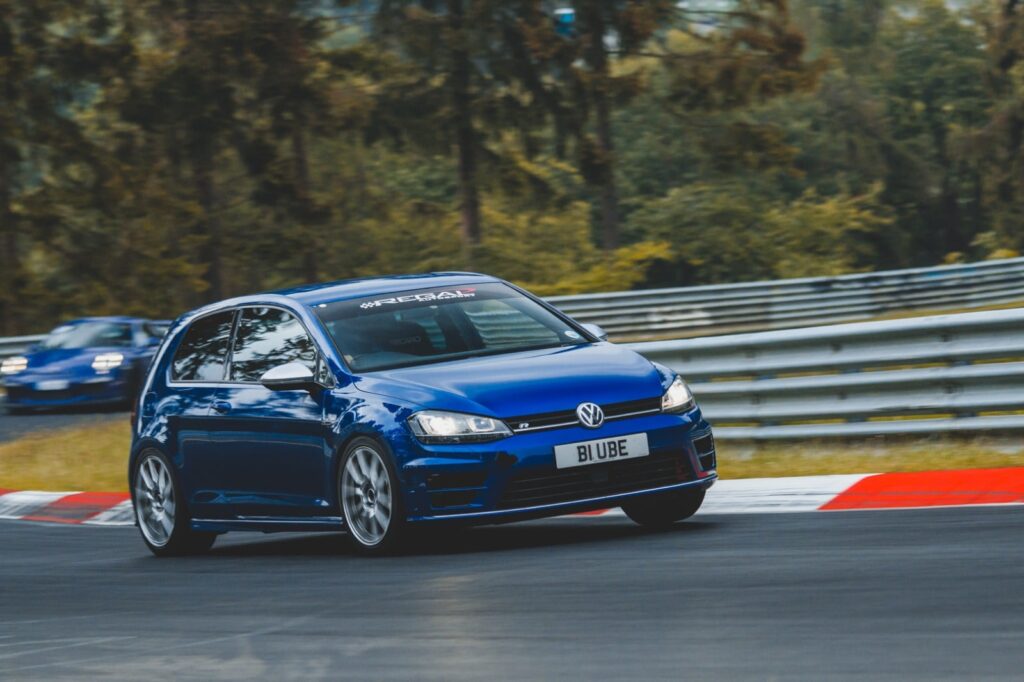
CSF HQ worked with CSF Europe manager Ash Stewart, who is the owner of a highly modified Mk 7 Golf R and experienced driver, to develop the MQB cooling package. The word came across to CSF that there was a tremendous gap in the marketplace for an easy to install / economical cooling solution to control DSG transmission temperatures during heavy track use in automatic transmission vehicles. As the cooling system experts, CSF was there to meet the challenge.
Before installing the upgraded CSF DSG heat exchanger, Ash was not able to push his car after several laps on the track because of high transmission oil temperatures. The transmission in his Golf R would start to feel sluggish, and he was forced to start short shifting (well below optimal shift points) to keep his car out of transmission limp mode and out on the track longer. He was unfortunately sacrificing faster lap times, for longer track sessions and to avoid the risk of damaging his transmission. After installing the CSF upgraded DSG heat exchanger + CSF engine water radiator, Ash reported back the following after a competitive track day at Donnington race circuit in the UK.
Observations from driving:
- Oil temperature seems to be consistently much lower by around 10-15°C (50-59°F), allowing me to use all of the revs all of the time without a care for oil temp. It sits at around 125°C (257°F) max now and I’ve never seen it go above 130°C (266°F) (this used to happen after around 2-3 “fast laps” with OEM set-up).
- Oil temperature now peaks and flat lines throughout the sessions. Before it would slowly grow to around 130°C (266°F) and then rise uncontrollably, very quickly and then not be able to cool down. Every time you would jump back on the throttle to drive fast, the oil temperature would spiral out of control again (talking 14°C+ (284°F with EASE).
Observations from logs:
- Engine coolant temperature does not go above 100.5°C (212.9°F)
What we can say for sure:
- Engine Oil Temperatures are reduced and maintained consistently during full load/rpm
- Engine coolant temperatures are maintained in the optimum range
- DSG oil temperatures rises and falls in line with the engine coolant temperature (well within ideal operating parameters)
Logged data from Ash’s track day testing after installing CSF’s new Ultimate Cooling Package.
Additional Track Testing / Auxilary Radiator – Players Show 2019

Radiator Comparison
CSF Unit
- 2-row 42mm (dual core) featuring CSF’s exclusive B-tube technology
- Core features an ultra-efficient fin with 6.5 mm fin height and multi-louvered design for maximum surface area contact
- Triple-pass flow structure allows the coolant to flow across the core of the radiator 3 times before exiting the radiator for lowest outlet temperatures possible
- CNC machined “quick-connect” inlet/outlet connections
- All-aluminum race style drain plug
- 1 hour “mirror finish” by hand
- “Drop-in fit” requiring no modifications to install
OEM Unit
- 1-row 26mm core
- Single-pass
- 7mm fin height
- Plastic end tanks



